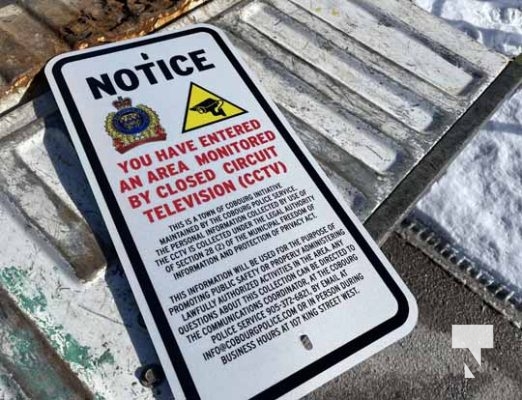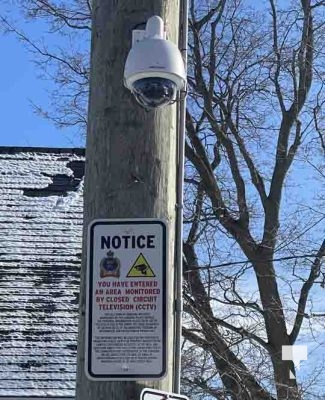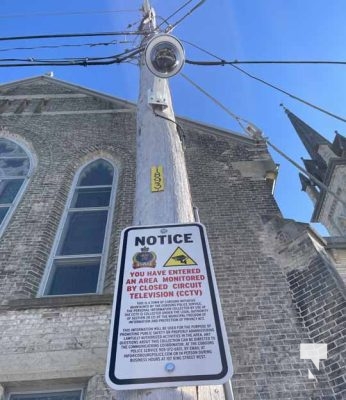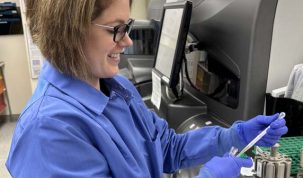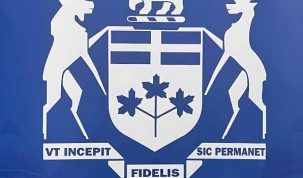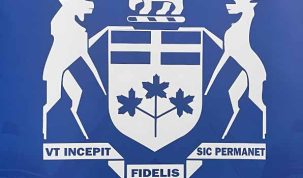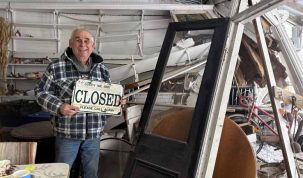As a result of a “robust” grant from the Solicitor General’s office, Cobourg Police has purchased seven closed circuit television cameras that have recently been installed.
Because of COVID, along with the supply chain, the cameras were delayed, but are now up and running in various locations in Cobourg.
Speaking to Today’s Northumberland Chief Paul VandeGraaf said the cameras were installed on the advice of the Service’s Crime Analyst, “has identified as areas of concern for a variety of activity – criminal in nature.”
By the end of summer, VandeGraaf said he hopes that all 25 cameras will be installed in key areas such as the beach, downtown and a number of intersections where road safety could be a factor.
Signs were installed on Thursday, March 3, 2022 making the public aware of the cameras in the areas they are located.
Some of the areas are James Street, just east of John Street. Chapel Street, just east of Division Street. Queen Street, just west of Church Street. Swayne Street, just east of Division Street, and near the canteen.
VandeGraaf said there is nothing “secret” about the cameras.
“We’re really up front about community safety. The signs meet all the standards of the privacy commission and we’re telling people why we’re here, what we’re doing here and what we’re trying to capture the data.”
Several years ago a camera was installed in the area of the Cobourg Beach, but was only used in case a crime was committed or a missing child.
VandeGraaf said the new cameras are similar in that only one person will be able to view the video and only if it meets the criteria.
VandeGraaf describes it as “passively monitoring.”
“We don’t have anybody looking at the monitors 24/7. When something happens we go back in time and we grab the data from the cameras.”
Because of the grant, the Police Service was able to invest in intelligence software that allows the computer to screen up to a hundred video sources at once based on a criteria that the analysts put into the system.
As an example, the service tested it by having a staged minor theft from the police station.
“We were able to take 12-hours of video footage and within 90-seconds determine when exactly the theft occurred.”
Also, if a person robbed a store and took a path in the areas of the cameras, the crime analyst can enter clothing the suspect was wearing along with height, hair style and the computer would give only the footage of the parameters that it was given.
VandeGraaf assures the public, “we don’t have any time or energy to sit there and stare blankly at cameras – nor are we.”
VandeGraaf states he doesn’t even have the passwords to look through the system.
Everything an approved analyst views video, they create a log that is compliant with the Information and Privacy Commission of Ontario. The log has to state, who is accessing it, when they accessed it, why they were accessing it, did they find anything and what was done with the data.
“That data has to be held so that any member of the community who is interested in why were looking at that – could make a Freedom of Information request.”
“We want everyone to understand what we’re doing in this community is really no different. Other than we have them in public spaces.
“Everyone has gone to Walmart, has gone to the liquor store, has gone to other shopping locations, the CCC or the marina where cameras are already present.”
As the body camera project gets set to role out in the next few months, VandeGraaf said there will be a lot of information sharing with the community to explain how they can get access to their footage should they feel they’ve been captured on video.
Simply put, “we’re not doing anything with the footage unless we need to solve a crime. We’re trying to create community safety.”
VandeGraaf said without the help from the Solicitor General and local MPP David Piccini in obtaining the grant, the project would not have been available in Cobourg.


